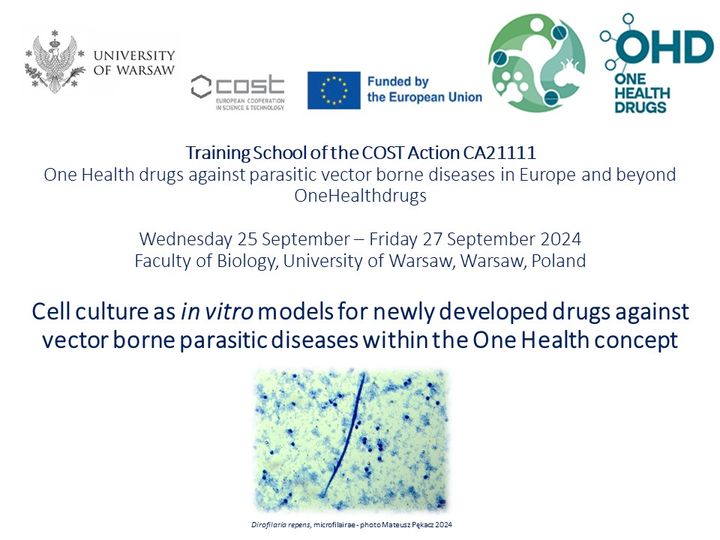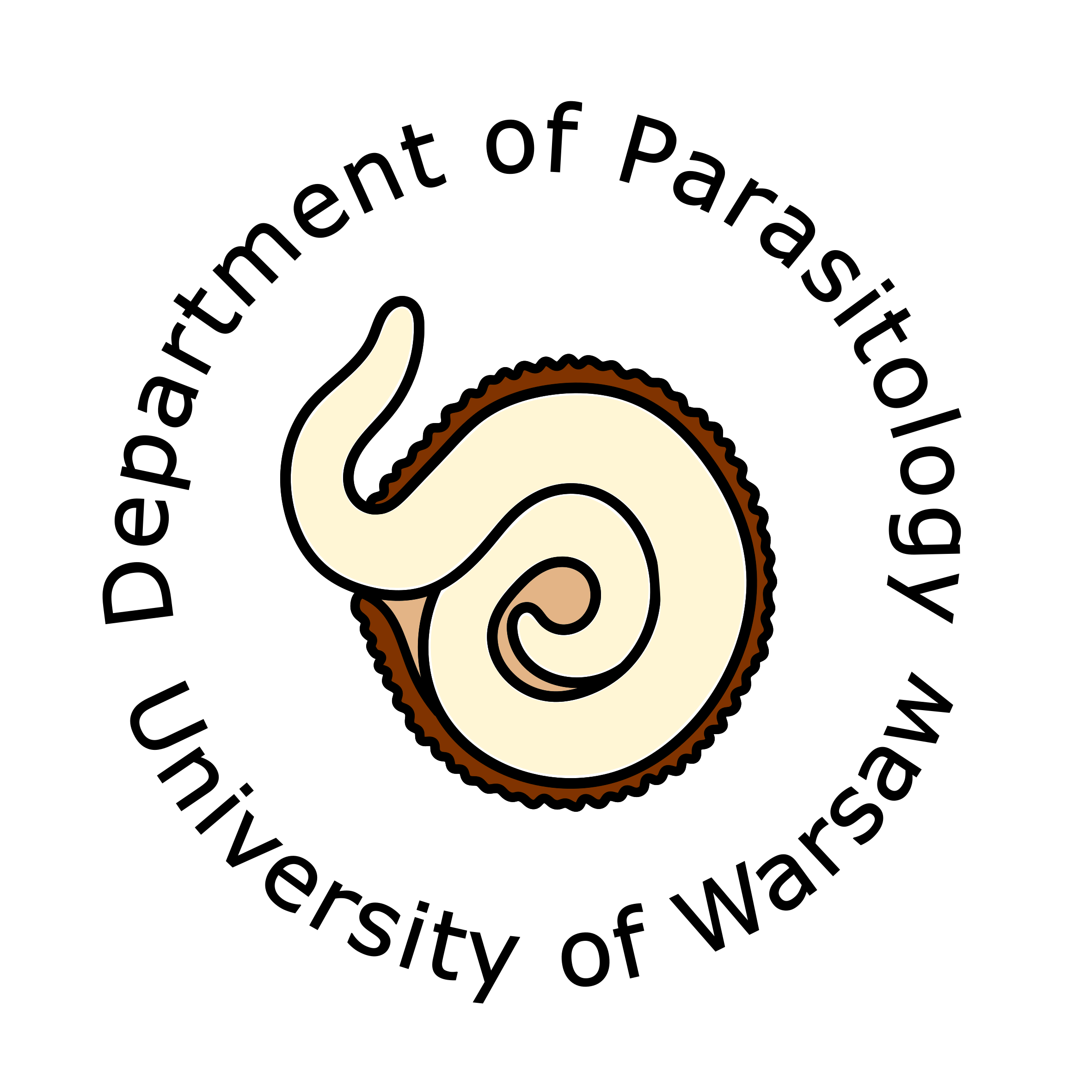Workshop under Training School COST CA21111

30 09 2024
Ten PhD students, post-docs and academics from European and non-European Union research centers will take part in a workshop as part of the COST CA21111 Training School. Practical classes and lectures will be held from September 25 to 27 at the Institute of Experimental Zoology (Department of Parasitology and Department of Immunology), Faculty of Biology, UW.
The theme of the workshop is “Cell culture as in vitro models for newly developed drugs against vector-borne parasitic diseases within the One Health concept.”
Participants include scientists from Italy, the UK, Albania, Turkey, Bulgaria, Lithuania, Portugal, Spain, Tunisia. Lectures and workshops will be given by COST project head Prof. Maria Paola Costi from the University of Modena and Reggio Emilia, deputy project head Prof. Anabela Cordelio da Silva from Universidade do Porto, Dr. Sheraz Gul – head of the Training School from the Fraunhofer Institute for Translational Medicine & Pharmacology, and scientists from the Faculty of Biology at UW Prof. Anna Szakiel Ph, D., Anna Zawistowska Deniziak, Ph.D., Katarzyna Basałaj, M.Sc., Mateusz Pękacz – a Ph.D. student, Katarzyna Goździk, Ph.D., and Andrzej Dziuba, M.Sc., an industry representative.
COST (European Cooperation in Science and Technology) is a agency which funds research and innovation networks. COST ACTIONS help connect research initiatives across Europe and enable researchers to advance their ideas by sharing them. This strengthens research, scientific careers and research innovation.
The goal of COST project CA21111 namely One Health drugs against parasitic vector borne diseases in Europe and beyond (OneHealthdrugs) https://onehealthdrugs.com/ is to coordinate research on the development of drugs against parasitic vector-borne diseases in humans and animals according to the principles of optimal profile for both organisms, increasing their efficacy while reducing harmful environmental impacts.
The project involves more than 300 members from 42 countries, including 32 countries in the European Union. The project began in 2022 and will end in 2026, with conferences, summer schools and workshops being held throughout the project.
